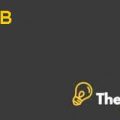
This case deals with the concept of broadband access and adoption in developing and developed countries, particularly in Indonesia. Telecommunications sector in Indonesia was poor infrastructure, and was dominated by two monopolies, PT Telkom and PT Indosat ("Indosat"), for decades until September 2000, when the government opened the sector to competition. The market went on to become highly competitive. This case emphasizes the strategies proposed by Indosat, to succeed in this market, with broadband penetration is identified as one of the main areas of revenue and growth for 2008. As is the case with most developing countries, where fixed infrastructure is minimal, the plan for the broadband technology developed through wireless platforms. This case can be used to understand the proposed strategy Indosat to promote broadband wireless broadband access in particular in Indonesia. It can also be used to discuss common issues that arise in the provision of telecommunications services in developing countries, especially where the former state monopoly player is faced with an increasingly competitive market. The case provides students the opportunity to discuss the best way to implement the proposed strategy for the company, given its competitive advantages and limitations of external political, regulatory and economic environment. "Hide
Havovi by Joshi, Indranil Bose Source: University of Hong Kong, 23 pages. Publication Date: 01 Oct 2008. Prod. #: HKU784-PDF-ENG













